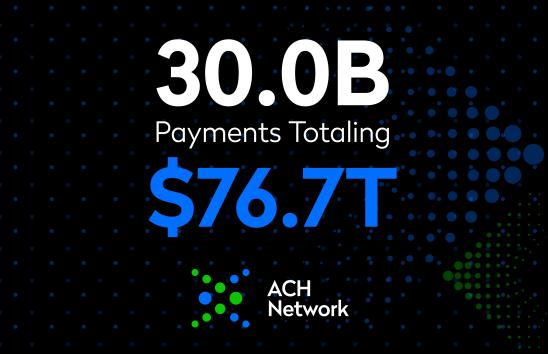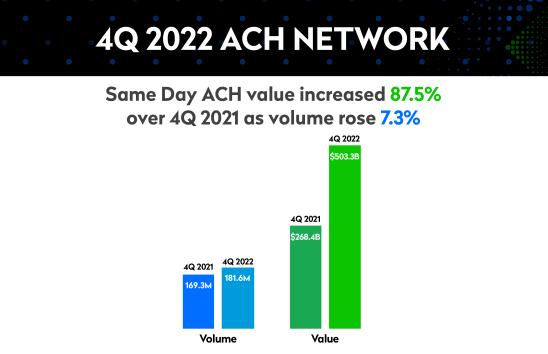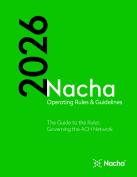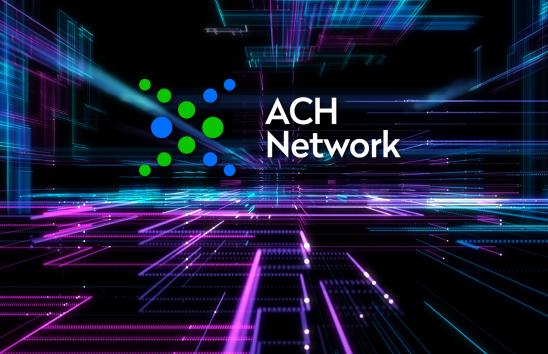Network Administration Fees
Each depository financial institution that transmits or receives ACH entries is required to pay Nacha an Annual Fee and a Per-Entry Fee for costs associated with the administration of the ACH Network. The fee amounts are set to recover costs of the ACH Network administrative functions, which Nacha performs for the industry on an “at-cost” basis.
ACH Network Administration Fees provide a stable and predictable source of funds, from those parties that receive service benefits, for ACH Network costs. The fee amounts are reviewed and approved by the Nacha Board of Directors annually and are amended as the Board deems necessary.
Purpose of ACH Network Administration Fees
Through the Annual Fee, all depository financial institutions that use the ACH Network equally contribute a minimum amount to maintain the Nacha Operating Rules. The Rules provide the legal and operational foundation for the ACH Network. Activities encompassed by the Nacha Rulemaking Process include the development and management of Rule proposals, Requests for Comment, Rule balloting, Rules interpretations and ACH Operations Bulletins, as well as Rules-related customer services and the administration of the Rules & Operations Committee and its subgroups.
Through the Per-Entry Fee, all depository financial institutions contribute proportionally based upon their use of the ACH Network. Per-Entry Fee proceeds are used to recover the costs of ACH Network activities associated with risk management, quality improvement, research and development of ACH applications and Rules, statistics, communications and advocacy, as well as the administration of national ACH messaging initiatives and the net costs of the Rules enforcement process. The Per-Entry Fee is applied to all commercial and government ACH entries transmitted or received by Participating DFIs, with the exception of “on-us” entries.
Administrative Fee Collection
The ACH Operators collect the Annual Fees and Per-Entry Fees on behalf of Nacha for entries sent from one depository financial institution to another through the ACH Operators.
Depository financial institutions are required to report, and Nacha collects directly, the Per-Entry Fees for ACH entries that are not sent through the ACH Operators but that are sent as part of direct send or “on-we” arrangements. A direct send or “on-we” arrangement is one in which a depository financial institution sends a payment file that uses the Nacha formats and/or is covered by the Nacha Operating Rules, where that file is not processed by an ACH Operator but instead is exchanged with another non-affiliated depository financial institution either directly or through another entity. This definition applies regardless of how interbank settlement is accomplished.
Depository financial institutions with direct send or “on-we” volume exceeding 5 million entries annually are obligated to file the requisite reporting with Nacha quarterly. Depository financial institutions with direct send volume below this threshold are obligated to file with Nacha annually. These financial institutions are required to submit transaction volume data and any associated fees directly to Nacha using form N-7 corresponding to that calendar year. Reporting requirements for direct send volume are included in Form N-7 in the Nacha Operating Rules.
Fee amounts for each year, published in the Schedule of Fees section of the Nacha Operating Rules, are based on the projected ACH Network administration costs as well as projected ACH volume. Any budgetary surplus or deficit that Nacha realizes from Network Administration Fees will be carried over when determining the following year’s “at-cost” fee amounts.
Download ACH Network Administration Fee Details:
ACH Network Administration Services
2022 Network Administrative Fee Schedule
2022 Form N-7 and Instructions
2021 Network Administrative Fee Schedule
2021 Form N-7 and Instructions
